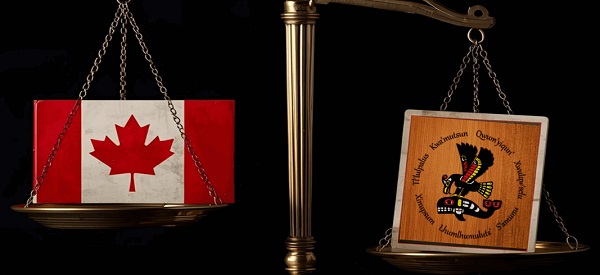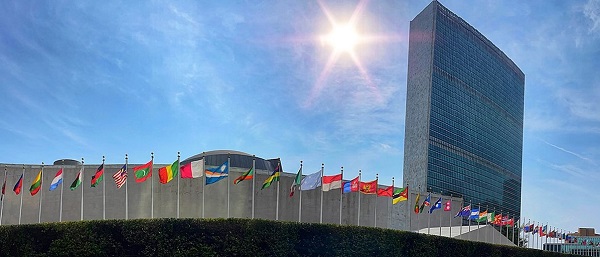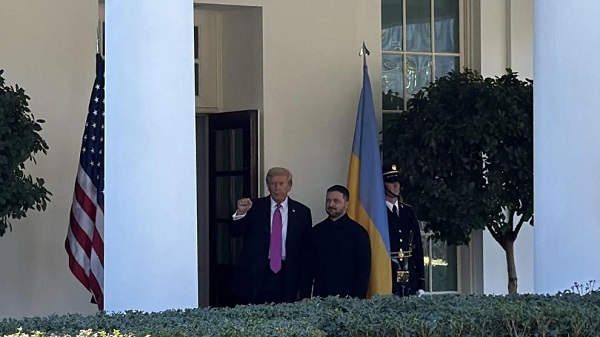Alberta
Could our sports history be … history?

Could our sports history be … history?
What began as a simple question was turned suddenly into a discouraging truth. The Alberta Sports Hall of Fame has not received any support from the provincial government this year and no discussions have been held about when – or if – the money might arrive.
The question was: “What chance is there that the annual banquet (postponed because of COVID-19) will be staged before the end of 2020?” Tracey Kinsella, who became executive director of the Hall last summer, responded that many existing lockdown issues would have to be cleared up, and some funding would be required. Then she pointed out that the Hall of Fame, which sits on the edge of Red Deer and has honoured athletes and sportsmen for decades, has been operating without funds. And she also pointed out that she has had little communication to date with any government representative about the cost of staying in business.
Given those simple facts, it takes no large dose of imagination to see the possibility that the Hall of Fame, which sits on the edge of Red Deer and has honoured athletes and sportsmen for decades, will not exist much longer. Alberta’s annual contribution is a mere $302,000, peanuts in the budget of any provincial government.
Of course, this is not just ANY government. It has bigger problems than most. The United Progressive Conservative government is locked in vital struggles over billions of resource revenue and thousands of jobs. Before the coronavirus interfered, facing a debt level already out of control, the UPC dismantled the Alberta Sports Connection board of governors, which provided years of experience in administration, public service and fund-raising, then oversaw the dismissal of at least one high-ranked staff member who served ASC with integrity for more than 25 years.
Moves to fill those gaps, if any, have been made in silence.
To put the record straight, this reporter spent five years as chair of ASC, the last two under control of an NDP minister so disinterested he once told hundreds of Leduc residents, “you know, of course, that I’m not in politics because I care about sports.” My term ended on schedule, before the UPC was elected.
In times like these, where major issues such as COVID-19 collect almost every available ounce of governmental focus, it is easy to look beyond issues that supposedly don’t matter. But, if provincial history and recognition of many who have contributed is important, some attention must be paid soon.
Kinsella, who has been involved in sport as an administrator and unpaid supporter for years, replaced veteran Donna Hately. She entered with enthusiastic ideas about “investments in the Hall.” Her concept would provide entertainment and education for youngsters while also upgrading the building, completed in 1997.
In recent years, she said, attendance at the annual induction banquet had not been “any kind of money-maker.” Other funds were raised in the annual Hall of Fame golf tournament. “Now, we’re doing whatever is necessary” as she looks toward the future. “I think we can get by at this level for about a year and a half, but it won’t be easy.”
Initially, the Hall of Fame induction banquet was scheduled for May 29. To be recognized whenever a date can be set are four athletes, three builders and two to share the Bell Memorial Award for media excellence, as well as individual Achievement, Pioneer and Legacy Award winners. Click for this year’s inductee’s.
Click here to make a donation to the Alberta Sports Hall of Fame.
Editor’s note: John is an Alberta Hall of Fame member, inducted in 1988 with the Bell Memorial Award for media excellence.
Click to read more of John’s stories.
Todayville has a many stories about the inductees over the past few years. Since 2017, we have produced a video of each inductee. Click here to find some amazing stories.
Alberta
Busting five myths about the Alberta oil sands

Construction of an oil sands SAGD production well pad in northern Alberta. Photo supplied to the Canadian Energy Centre
From the Canadian Energy Centre
The facts about one of Canada’s biggest industries
Alberta’s oil sands sector is one of Canada’s most important industries — and also one of its most misunderstood.
Here are five common myths, and the facts behind them.
Myth: Oil sands emissions are unchecked

Steam generators at a SAGD oil sands production site in northern Alberta. Photo courtesy Cenovus Energy
Reality: Oil sands emissions are strictly regulated and monitored. Producers are making improvements through innovation and efficiency.
The sector’s average emissions per barrel – already on par with the average oil consumed in the United States, according to S&P Global – continue to go down.
The province reports that oil sands emissions per barrel declined by 26 per cent per barrel from 2012 to 2023. At the same time, production increased by 96 per cent.
Analysts with S&P Global call this a “structural change” for the industry where production growth is beginning to rise faster than emissions growth.
The firm continues to anticipate a decrease in total oil sands emissions within the next few years.
The Pathways Alliance — companies representing about 95 per cent of oil sands activity — aims to significantly cut emissions from production through a major carbon capture and storage (CCS) project and other innovations.
Myth: There is no demand for oil sands production

Expanded export capacity at the Trans Mountain Westridge Terminal. Photo courtesy Trans Mountain Corporation
Reality: Demand for Canadian oil – which primarily comes from the oil sands – is strong and rising.
Today, America imports more than 80 per cent more oil from Canada than it did in 2010, according to the U.S. Energy Information Administration (EIA).
New global customers also now have access to Canadian oil thanks to the opening of the Trans Mountain pipeline expansion in 2024.
Exports to countries outside the U.S. increased by 180 per cent since the project went into service, reaching a record 525,000 barrels per day in July 2025, according to the Canada Energy Regulator.
The world’s appetite for oil keeps growing — and it’s not stopping anytime soon.
According to the latest EIA projections, the world will consume about 120 million barrels per day of oil and petroleum liquids in 2050, up from about 104 million barrels per day today.
Myth: Oil sands projects cost too much
Reality: Operating oil sands projects deliver some of the lowest-cost oil in North America, according to Enverus Intelligence Research.
Unlike U.S. shale plays, oil sands production is a long-life, low-decline “manufacturing” process without the treadmill of ongoing investment in new drilling, according to BMO Capital Markets.
Vast oil sands reserves support mining projects with no drilling, and the standard SAGD drilling method involves about 60 per cent fewer wells than the average shale play, BMO says.
After initial investment, Enverus says oil sands projects typically break even at less than US$50 per barrel WTI.
Myth: Indigenous communities don’t support the oil sands

Chief Greg Desjarlais of Frog Lake First Nation signs an agreement in September 2022 whereby 23 First Nations and Métis communities in Alberta acquired an 11.57 per cent ownership interest in seven Enbridge-operated oil sands pipelines for approximately $1 billion. Photo courtesy Enbridge
Reality: Indigenous communities play an important role in the oil sands sector through community agreements, business contracts and, increasingly, project equity ownership.
Oil sands producers spent an average of $1.8 billion per year with 180 Indigenous-affiliated vendors between 2021 and 2023, according to the Canadian Association of Petroleum Producers.
Indigenous communities are now owners of key projects that support the oil sands, including Suncor Energy’s East Tank Farm (49 per cent owned by two communities); the Northern Courier pipeline system (14 per cent owned by eight communities); and the Athabasca Trunkline, seven operating Enbridge oil sands pipelines (~12 per cent owned by 23 communities).
These partnerships strengthen Indigenous communities with long-term revenue, helping build economic reconciliation.
Myth: Oil sands development only benefits people in Alberta
Reality: Oil sands development benefits Canadians across the country through reliable energy supply, jobs, taxes and government revenues that help pay for services like roads, schools and hospitals.
The sector has contributed approximately $1 trillion to the Canadian economy over the past 25 years, according to analysis by the Macdonald-Laurier Institute (MLI).
That reflects total direct spending — including capital investment, operating costs, taxes and royalties — not profits or dividends for shareholders.
More than 2,300 companies outside of Alberta have had direct business with the oilsands, including over 1,300 in Ontario and almost 600 in Quebec, MLI said.
Energy products are by far Canada’s largest export, representing $196 billion, or about one-quarter of Canada’s total trade in 2024, according to Statistics Canada.
Led by the oil sands, Canada’s energy sector directly or indirectly employs more than 445,000 people across the country, according to Natural Resources Canada.
Alberta
Diploma Exams Affected: No school Monday as ATA rejects offer of enhanced mediation

Premier Danielle Smith, Minister of Finance Nate Horner, and Minister of Education Demetrios Nicolaides issued the following statement.
“Yesterday, the Provincial Bargaining and Compensation Office wrote to the Alberta Teachers’ Association (ATA) and formally requested an agreement to enter an enhanced mediation process.
“This process would have ensured that students returned to the classrooms on Monday, and that teachers returned to work.
“Negotiating would have continued with the ATA, Teachers’ Employer Bargaining Association (TEBA) and a third-party mediator to propose a recommended agreement.
“We are very disappointed that the Alberta Teachers’ Association refused this offer. Teachers and students should also be disappointed.
“PBCO made this offer to the ATA because the union has not made a reasonable offer and this strike is impacting students. Alberta’s government is trying to put kids first and bring an end to this strike.
“The offer of enhanced mediation provided a clear path to ending it.
“We want the same things as the ATA: More teachers. More pay for teachers. More educational assistants. And more classrooms.
“This strike has gone on too long and we are extremely concerned about the impact it is having on students.
“We are willing to consider further options to ensure that our next generation gets the world-class education they deserve. After about three weeks, a strike of this nature would reach the threshold of causing irreparable harm to our students’ education.
“The ATA needs to do what is right for its members, and for all Alberta students.
“If it refuses to do so, we will consider further options to bring this strike to an end.”
Diploma exam update
November diploma exams will be optional for students.
With instructional time in schools disrupted due to the teacher strike, the November 2025 diploma exams will now be optional for students. Students who wish to write a diploma exam may request to do so, and their school boards will accommodate the request.
The optional diploma exams apply to all schools provincewide. These exams will still take place on the currently scheduled dates.
Students who choose not to write the November diploma exams can still complete their courses and graduate on time. Their final grade will be based entirely on the school-awarded mark provided by their teacher.
Choosing not to write the November diploma exams will not affect a student’s ability to apply to, be accepted by, or attend post-secondary institutions after graduation.
No changes have been made to the January and June diplomas and provincial achievement tests.
Quick facts
- Students are automatically exempted from writing the November diploma exams but can request to write them.
- School boards must allow the student to write the diploma exam if requested.
-

 Red Deer2 days ago
Red Deer2 days agoYour last minute election prep: Common Sense Red Deer talks to the candidates
-

 City of Red Deer23 hours ago
City of Red Deer23 hours agoPlan Ahead: Voting May Take a Little Longer This Election Day
-

 Business2 days ago
Business2 days agoJudges are Remaking Constitutional Law, Not Applying it – and Canadians’ Property Rights are Part of the Collateral Damage
-

 Business2 days ago
Business2 days agoTrump Blocks UN’s Back Door Carbon Tax
-

 Media2 days ago
Media2 days agoCanada’s top Parliamentary reporters easily manipulated by the PMO’s “anonymous sources”
-

 Uncategorized11 hours ago
Uncategorized11 hours agoNew report warns WHO health rules erode Canada’s democracy and Charter rights
-

 Business2 days ago
Business2 days agoTrump Admin Blows Up UN ‘Global Green New Scam’ Tax Push, Forcing Pullback
-

 Daily Caller2 days ago
Daily Caller2 days agoTrump urges Putin, Zelenskyy to make a ‘deal’



